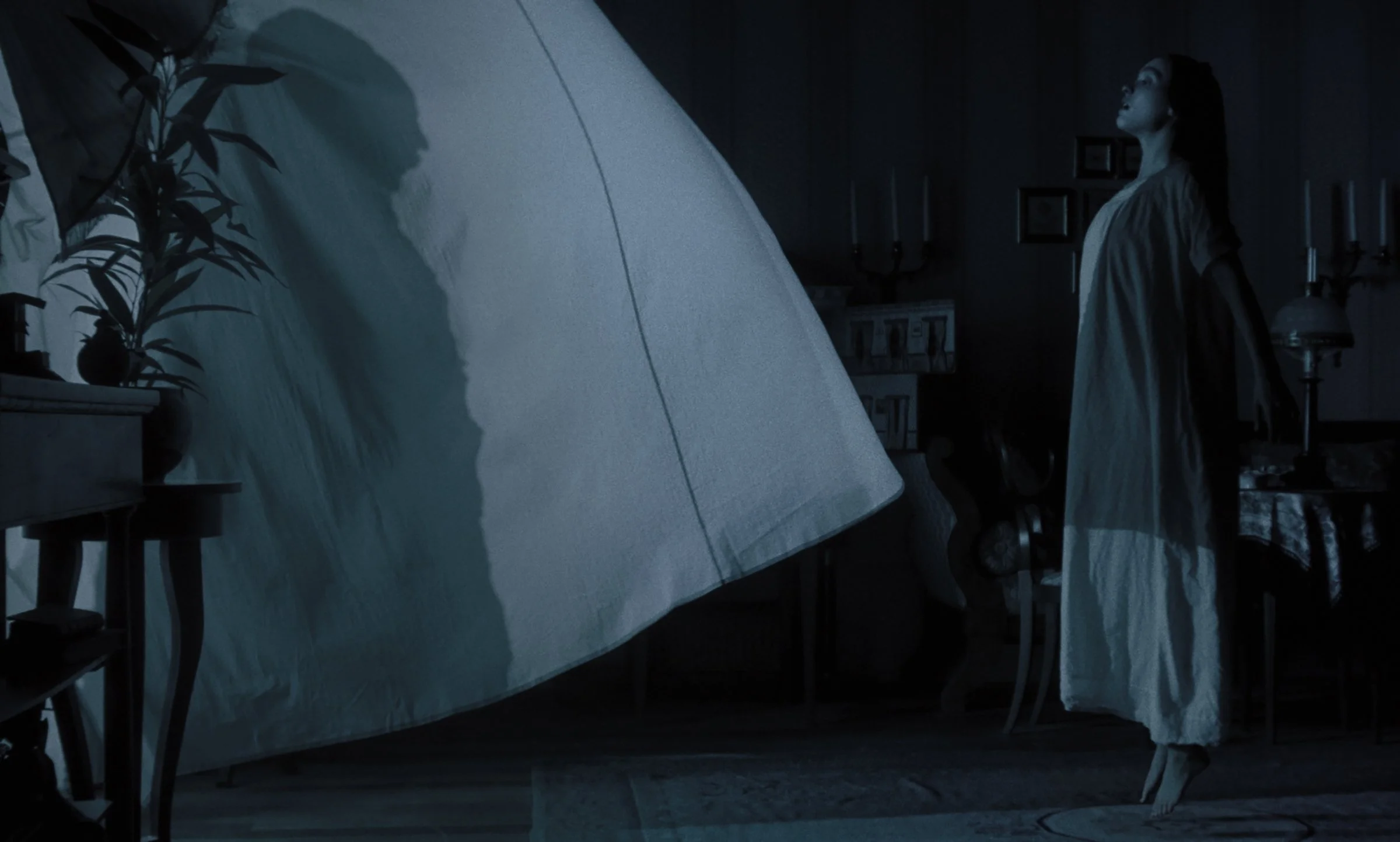Nosferatu
Robert Eggers has taken the haunting bones of Nosferatu, originally a German silent film from 1922, and draped them in the most stunning cinematic flesh. The 2025 interpretation of this classic isn’t just a remake - it’s a reinvention. Eggers’ signature artistry shines through in every frame, from the silvery blue nightscapes to the crucifixes subtly embedded in windows, shadows and furniture throughout.
The interplay of shadow and light creates an atmosphere so rich it feels alive. This isn’t just a movie; it’s a visual feast that balances gothic beauty with moments of visceral terror. Whether it’s the hypnotic silhouettes or the jarring subliminal flashes of horror, the film demands to be experienced on the largest screen possible.
A Cast That Breathes New Life Into an Old Tale
Lily-Rose Depp is a revelation as Ellen Hutter, delivering a performance that is both heartbreaking and magnetic. Her portrayal of Ellen - a woman torn between fear and forbidden desire - is nothing short of extraordinary. She is the emotional anchor of the film, capturing every nuance of repression, guilt, and longing.
Bill Skarsgård’s Count Orlok is as terrifying as he is unrecognisable. His haunting presence lingers in every scene, an embodiment of predatory menace. Nicholas Hoult and Aaron Taylor-Johnson provide strong support, but it’s Willem Dafoe who surprises with a twisted, darkly humorous turn as Professor Von Franz. His performance adds unexpected layers to the narrative without detracting from the terror.
Horror That Cuts to the Bone
Eggers pulls no punches with the horror in Nosferatu. From Ellen’s trancelike visions to Thomas Hutter’s disturbing encounters in Orlok’s castle, the film revels in its ability to unsettle. The gruesome imagery is relentless, culminating in a horrifying final scene where Ellen and Orlok lie entwined in a blood-soaked embrace.
Yet, the film isn’t just about shock value. Eggers weaves themes of spiritualism, repression, and guilt into the narrative, elevating the story beyond a simple tale of terror. It’s horrifying, yes, but also profoundly human.
Support Pario Magazine
$2.50 / month
Early Access







